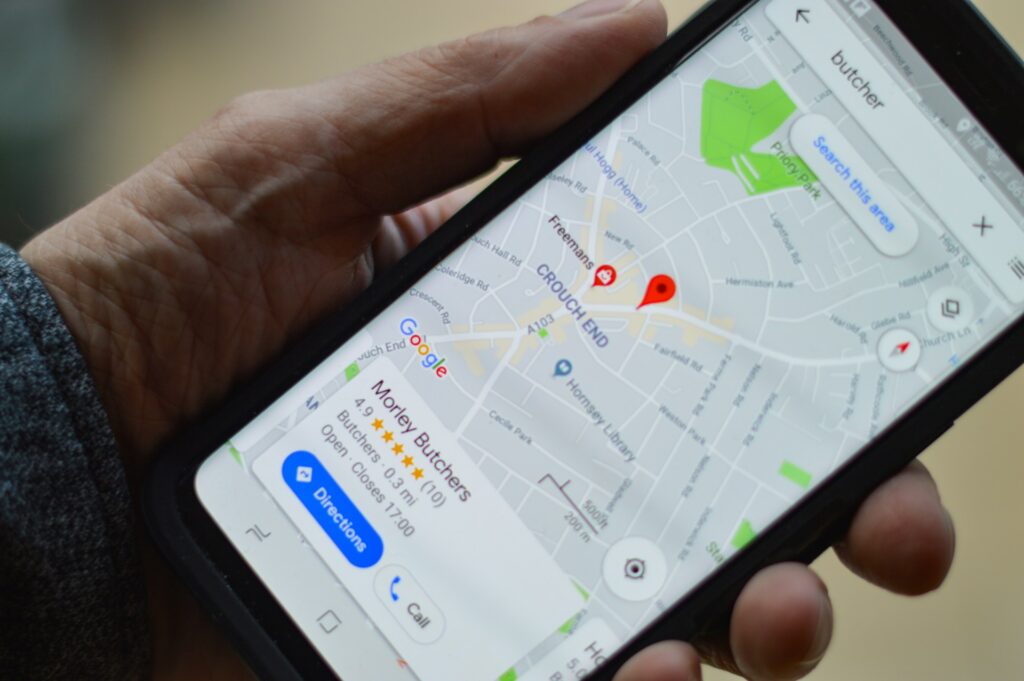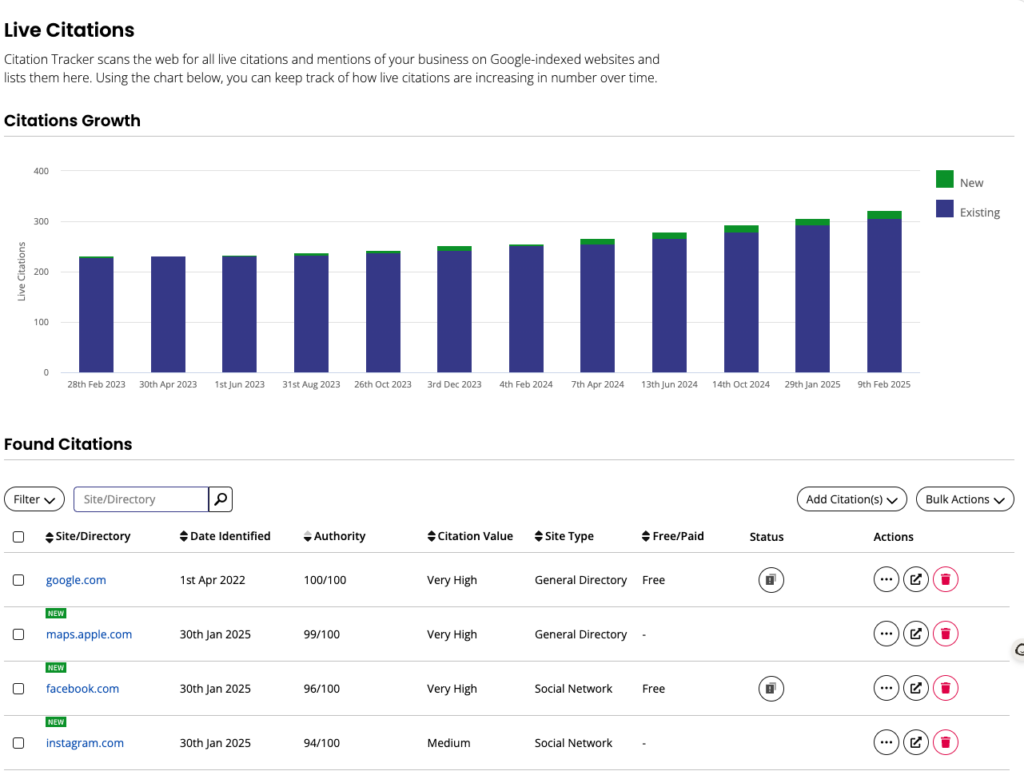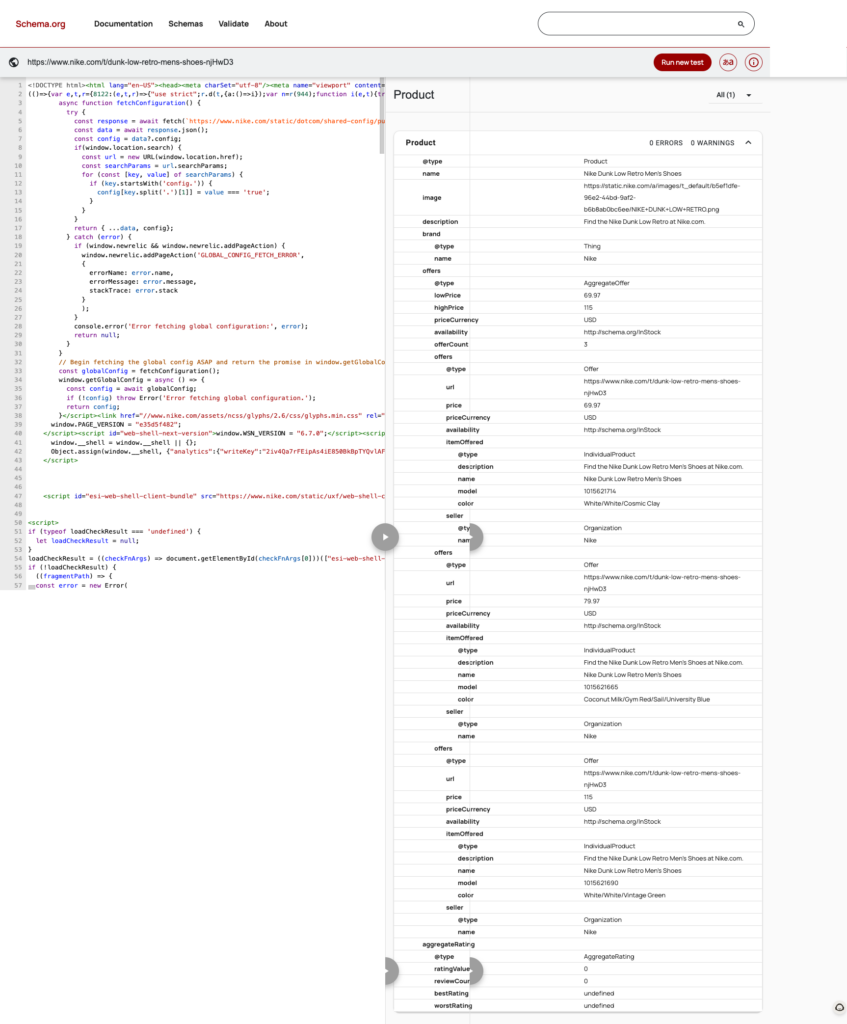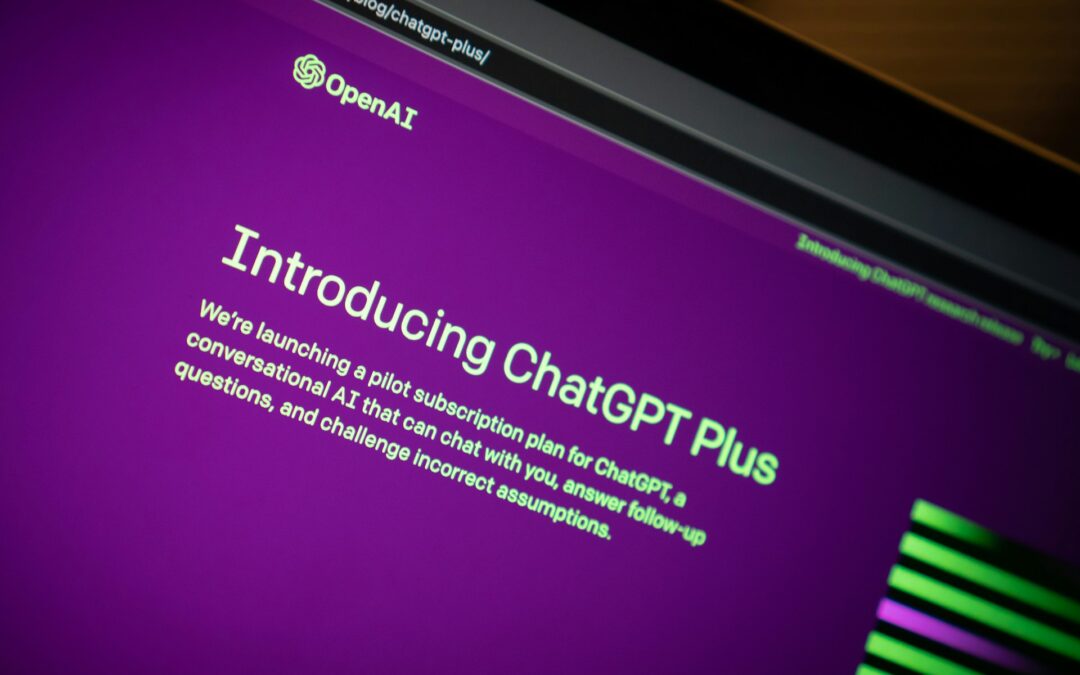AI tools, like ChatGPT, are revolutionizing the way businesses engage with their customers. A recent study found that 91% of companies are already investing in artificial intelligence to enhance customer interactions, while 86% of buyers prefer brands that personalize their communication using AI-driven insights. These numbers highlight a shift in the digital landscape, where AI is no longer a futuristic concept—it’s the here and now.
From answering inquiries to making tailored recommendations, tools like ChatGPT help businesses become more agile and responsive to customer needs. This transformation presents a huge opportunity, but it also requires businesses to evolve. To stand out in this AI-powered world, you need to ensure your online presence is refined, accessible, and ready for these intelligent systems.
Understanding How ChatGPT Works for Local Businesses
ChatGPT, as a powerful AI tool, has reshaped how people seek information. It provides instantaneous, conversational answers to various queries, including those about local businesses. But how does it actually work in this context? For local businesses aiming to appear in ChatGPT’s recommendations or results, it’s crucial to understand how the AI gathers and uses information.
ChatGPT doesn’t have access to live internet data. Instead, it relies on publicly available content, structured data, and relevant databases that have been pre-processed or stored. This includes data from reputable websites, online directories, reviews, business listings, and other credible sources. By pulling from this broad spectrum of material, ChatGPT delivers answers that feel relevant, accurate, and personalized to the user’s query.
Consumer Reliance on ChatGPT for Local Queries
One area of growth in the ways consumers use ChatGPT today is for location-based or service-specific questions. Queries like “Where can I find the best pizza near me?” or “Who’s the most reliable plumber in [City]?” are common examples. Instead of scrolling through a dozen search results, users trust ChatGPT to synthesize information and provide a streamlined recommendation. This positions ChatGPT as not just a search tool but a decision-making assistant.
For local business owners, this dynamic behavior means prospective customers are relying heavily on AI tools to filter out irrelevant options and highlight the best match quickly. Ensuring that your business has a visible and credible digital presence increases the likelihood of being featured in these responses.
Why Data Accuracy and Relevancy Matter
ChatGPT’s ability to answer questions effectively hinges on the accuracy and relevance of the data it pulls. If your business information online is inconsistent or outdated, you risk being overlooked or, worse, sending prospective customers elsewhere due to confusion. For example, if your business hours listed on your website differ from those on your Google Business Profile, or if your address is incorrect across directories, ChatGPT might avoid including your business in its responses.
To align your content with ChatGPT’s outputs, consider these key areas:
- Consistency is crucial. Ensure that your business name, address, and phone number (referred to as NAP) are identical across all online platforms, including your website, directories, and review sites.
- Detailed and up-to-date information. Include operational details like hours of business, services offered, and key features (like “pet-friendly” or “wheelchair accessible”) in all listings.
- Relevance to customer queries. Tailor your online content—blogs, FAQs, and meta descriptions—to reflect the typical questions and terms consumers might ask ChatGPT regarding your services. For example, if someone asks, “Where can I find handmade jewelry in [City]?” does your website or profile provide enough detail to make you the clear answer?
Ultimately, by maintaining accurate and user-focused content, you can boost your chances of being represented in ChatGPT’s answers, helping your business tap into this modern approach to customer engagement. By doing so, you establish trust and credibility—not just with AI systems but also with potential customers.
Key Strategies to Rank on ChatGPT
#1 Prioritize Local SEO

For local businesses, ranking high in relevant search results is essential for attracting nearby customers. Local SEO, or search engine optimization tailored to a specific geographic area, is the key to ensuring your business appears in searches like “best dry cleaner in [City]” or “home repair services near me.” By optimizing for location-based keywords and improving your visibility on local platforms, you position yourself as a trusted option in your community—and increase the chances of being featured in tools like ChatGPT.
Importance of Local Keywords and Location-based Optimization
Local keywords are the foundation of effective local SEO. Adding terms like your city, neighborhood, or even nearby landmarks to your content makes it easier for search engines—and ChatGPT—to identify where your business is located and the audience you serve. Without these localized details, customers searching for services near them may never discover your business.
Additionally, location-based optimization isn’t just about sprinkling keywords in your text; it’s about creating a connection to your community and showing your relevance to the local area. When done right, it builds trust, drives traffic, and converts searchers into loyal customers.
Actionable Tips for Effective Local SEO
- Use Location-specific Keywords in Content and Meta Descriptions
Incorporating local keywords not only helps customers find you easily but also tells search engines what you do and where you operate.- Example: If you’re a plumber in Austin, your homepage meta description could include, “Reliable plumber in Austin for emergency and scheduled repairs.” Similarly, your web content should include phrases like “serving the Austin area for 20 years” or “water heater repair services near downtown Austin.”
- Use these keywords in your headlines, service descriptions, and blog posts, ensuring they flow naturally and don’t feel forced.
- Create Hyper-local Content
Crafting content that focuses on your community is a great way to build local relevance. Consider publishing blog posts, news, or updates that spotlight your area, local events, or collaborations with other businesses. This kind of content resonates with both search engines and your audience.- Example: A bakery in Portland could create a blog titled, “5 Unique Pastries to Try in Downtown Portland,” offering mouthwatering descriptions of its offerings while incorporating essential local keywords.
- Other ideas include “Your Guide to Events in [Neighborhood]” or tips on how your services tie into local needs or traditions.
- Focus on Online Directories for More Exposure
Visibility on reputable directories like Yelp, Bing, and TripAdvisor can significantly improve your local SEO rankings. These platforms are among the first places users turn to when researching local businesses—and they’re also sources ChatGPT might consider when pulling recommendations.- Claim and verify your business on these directories.
- Ensure your information (like name, address, and phone number) is accurate and matches your other profiles.
- Encourage satisfied customers to leave reviews on these platforms, as reviews contribute to credibility and trustworthiness.
By implementing these strategies, your website and digital presence will not only rank higher in local searches but also position your business as the go-to choice in your area. From using precise keywords to creating content that speaks to your community, prioritizing local SEO sets the foundation for sustained visibility and growth in a competitive landscape.
#2 Improve Website Content Relevance

Optimizing your website for relevance is one of the most effective ways to ensure it aligns with the types of questions users ask ChatGPT. Queries like, “What’s the best dry cleaner near me?” or “Which shoe store offers customized fittings in [City]?” are focused and specific. To increase your chances of being highlighted as an answer, your website needs content that not only tackles these queries directly but also demonstrates value and trustworthiness.
Why Content Relevance is Critical
ChatGPT draws answers from structured and well-written online content to respond to user questions. If your website lacks depth, detail, or alignment with common consumer queries, it’s unlikely to be featured. On the other hand, regularly updating your site with high-quality, user-focused content establishes authority and ensures your business is seen as a reliable resource.
Tips for High-Quality Content That Ranks
- Create an FAQ Page Addressing Common Consumer Questions
FAQs are a goldmine for capturing the exact phrases customers are likely to ask in tools like ChatGPT. Think about questions related to your business, industry, or services and answer them clearly and thoroughly.- Example: A fitness studio could include an FAQ section addressing queries like, “Do you offer beginner yoga classes in [City]?” or “What’s your schedule for weekend Zumba sessions?”
- Highlight details like pricing, hours, and unique offerings to provide value to prospective customers while boosting your site’s relevance.
- Regularly Update Content with New Blog Posts
Blogs are an excellent way to target long-tail keywords and engage with local audiences. Focus on creating posts that solve problems, give expert advice, or tie into trending topics in your area. Regular updates show both search engines and ChatGPT that your site is active and trustworthy.- Consider writing about seasonal trends, “how-to” guides, or event-based topics.
- Example: A dry cleaner could post content like, “5 Tips for Preserving Your Wedding Dress in [City],” ensuring the post is both location-targeted and useful.
- Include Customer Testimonials and Case Studies
Testimonials and case studies are powerful tools to boost credibility. Visitors (and AI tools) regard reviews as trust signals, especially when they provide anecdotal evidence of quality service or outcomes.- Add a dedicated “Testimonials” or “Success Stories” page to your site showcasing how your business has solved customer problems.
- Example: A cleaning service might detail a case study about how they transformed a large event space post-celebration, complete with before-and-after photos and glowing feedback from the client.
- Enable Geo-targeted Content Enhancements
Localize your website’s content by mentioning nearby landmarks, neighborhoods, or features. This could be as simple as referencing the area your business serves throughout your website copy.- Example: A home repair service could write, “Proudly serving homeowners in [Neighborhood], [City], and surrounding areas since 1995.”
By focusing on the relevance of your content and tailoring it to answer real questions, you can position your website as a valuable resource—not only for potential customers but also for AI platforms like ChatGPT. When your content aligns with user intent and provides clear, high-value answers, you increase your exposure while building trust in your brand.
#3 Engage with Reviews and Build Trust

Reviews are more powerful than you might think. For AI tools like ChatGPT, reviews serve as key indicators of credibility and trust, which ultimately influence whether your business gets recommended. When users ask ChatGPT for suggestions like “Where’s the best pizza near me?” or “local electricians I can trust,” it’s trained to consider businesses with strong, consistent positive feedback. By prioritizing reviews and actively engaging with them, you can enhance your business’s reputation and visibility in AI-driven search results.
Why Reviews Matter
Reviews are not just for potential customers—they’re part of the digital fingerprints that ChatGPT and other AI tools analyze to make credible recommendations. A high volume of positive reviews signals reliability and satisfaction, while actively managed reviews (where owners respond thoughtfully) suggest that a business is engaged and responsive, which further increases trust.
Ignoring reviews could hurt your chances of being featured when users rely on ChatGPT for recommendations. On the flip side, cultivating reviews and managing them well can set your business apart, establishing you as a trusted choice in your industry.
Actionable Tips to Maximize the Power of Reviews
- Encourage Satisfied Customers to Leave Reviews
The more reviews you have on trusted platforms like Google and Yelp, the more data ChatGPT has to vouch for your credibility. Make leaving a review as easy as possible for your customers.- Include direct review links in emails, receipts, or follow-up messages.
- You can even use prompts like, “Did we exceed your expectations? Share your experience on Google—it helps us grow!”
- Incentivize reviews with non-monetary rewards, such as a public thank-you on social media, to encourage more participation.
- Respond Promptly to Customer Feedback
Customer reviews—whether positive or negative—offer an opportunity to show your commitment to engagement and service excellence. Responding quicky and thoughtfully demonstrates that you care about customer experiences.- For positive reviews, show gratitude. A simple “Thank you for your kind words!” goes a long way.
- For negative reviews, address issues head-on. Apologize, provide a solution, and take the conversation offline if possible, to resolve more complex complaints.
- Example: If someone complains about a late delivery, you could reply, “We’re sorry for the delay! We’ll be reaching out to you directly to make it right. Thank you for your feedback—it helps us improve.”
- Highlight Glowing Reviews in Your Marketing
Don’t just leave your best reviews to sit on review sites—showcase them in your marketing materials to build social proof. Testimonials and high-star ratings instill trust in potential customers who might be hesitant to try your services.- Feature a “What Our Customers Say” section on your website that highlights standout reviews.
- Use quotes from happy customers in email campaigns, social media posts, or even printed flyers.
- Example: A landscaping business could share a 5-star Google review on Instagram with the caption, “Transforming gardens and making customers happy, one yard at a time!”
By engaging with reviews and actively building trust, you not only enhance your local reputation but also increase your chances of being picked up by ChatGPT during search queries. Reviews are a window into what your business stands for, and when managed correctly, they help solidify your position as a top recommendation in your community. Keep the conversation going, and you’ll build both loyalty and visibility.
#4 Claim Mentions Across Online Platforms

Having a strong presence on reputable online platforms can significantly boost your chances of being recognized by ChatGPT and other AI-driven tools. ChatGPT gathers information from credible sources across the web, such as using the Bing index, and the more your business is mentioned on these platforms, the more trustworthy and established it appears. This visibility increases the likelihood that your business will feature prominently in AI-generated recommendations for queries like “best hair salon near me” or “local catering services.”
Why Mentions Matter
Mentions on established and well-regarded platforms not only increase your online footprint but also signal to ChatGPT that your business is credible. AI tools prioritize businesses with verified information across multiple sources, as this consistency enhances reliability and reduces any risk of misinformation. If your presence is spotty or outdated on these platforms, potential customers (and ChatGPT) are less likely to see your business as a go-to option.
Actionable Tips to Expand Your Online Presence
- Verify Business Listings on Key Platforms
Start by claiming and verifying your business across prominent directories and mapping tools. Platforms like Bing Places, Apple Maps, and prominent social media networks are vital to ensure your business information is accurate and up-to-date.- Double-check that your name, address, and phone number (NAP) match across all accounts. Consistency matters!
- Use every opportunity to enhance your profile by uploading high-quality photos, adding a detailed description with relevant keywords, and completing additional fields like hours of operation or payment methods accepted.
- Example: If you run a florist shop, ensuring that your business is listed correctly on platforms like Apple Maps ensures customers can quickly find your store and contact details with ease.
- Build Relationships with Local News Outlets and Bloggers
Press coverage and features on well-known local websites can dramatically improve your online credibility. AI platforms like ChatGPT scrape content from such reliable sources, increasing the chances your business will appear in their recommendations.- Pitch a story about your business’s unique offerings to local media outlets or niche bloggers in your area. For example, if you own a bookstore, share details about an upcoming author event or a community book club you’re hosting.
- Encourage trusted bloggers to review your services or products and share their impressions with their audience.
- Don’t overlook online magazines or neighborhood-specific digital publications—they can perform just as well as major outlets in boosting visibility.
- Leverage Social Media for Broader Mentions
Social platforms like Facebook, LinkedIn, and Instagram aren’t just for marketing—they’re a vital source of mentions, too. Optimize your business’s social profiles and ensure they’re active to attract positive attention.- Regularly engage your audience with posts highlighting events, promotions, or testimonials.
- Tag local businesses or collaborators in your posts to encourage cross-mentions that widen your reach.
- Encourage customers to tag your business when posting about their positive experiences. Their posts could attract new followers and give additional credibility to your brand.
- Join Niche Online Directories
Apart from general directory platforms, consider niche directories specific to your industry. For instance, restaurants should focus on platforms like Zomato or OpenTable, while salons may want to appear on beauty-specific directories like StyleSeat. These platforms not only attract your target audience but are also reliable sources for ChatGPT to pull recommendations.
By diligently claiming mentions across reputable online platforms, you’ll build a stronger presence that benefits both your business and its visibility in AI-generated results. The more widespread and recognized your business becomes, the better its chances to rank—and to be seen by the customers you’re aiming to reach.
#5 Provide Clear and Concise Information

When it comes to getting noticed online, clarity is key. ChatGPT, along with other AI tools, relies on structured and accessible information to understand and recommend your business effectively. By providing clear, concise, and well-organized content, you can help ensure your business stands out when people ask questions like, “Where can I find the best Italian restaurant nearby?” or “What handyman services are available near me?” Leveraging structured data and ensuring your website is crawlable are critical steps in making your business AI-ready.
Why Structured Data is Crucial
Structured data, like schema markup, acts as a translator for search engines and AI tools. It provides a clear framework that organizes your business details, making it easier for ChatGPT to extract relevant information about your offerings. Without it, your website risks being overlooked, as AI may struggle to interpret unstructured or incomplete information.
When ChatGPT scans your website, structured data boosts visibility by clearly outlining key details such as your business name, address, operating hours, and frequently asked questions. This not only helps users looking for quick answers, but also increases your chance of being included in local search queries.
Tips for Implementing Structured Data
- Add FAQ Schema to Your Website
FAQ schema allows AI tools like ChatGPT to easily access and display responses to common consumer queries directly from your website.- Use an FAQ section to answer popular questions about your business, such as, “What services do you offer?” or “Do you provide delivery options?”
- Pair the FAQ page with structured data so search engines and AI tools can instantly understand and utilize the content.
- Example: A yoga studio could include questions like, “What types of classes are available?” or “Do you offer sessions for beginners?”
- Add Schema for Local Business Details
Local business schema provides ChatGPT with essential information about your operations, helping potential customers quickly find what they need.- Include details like your business name, address, phone number (NAP), hours of operation, and service area.
- Optimize fields such as accepted payment methods, customer ratings, and even social media links to give AI a complete picture of your offerings.
- Example: A coffee shop can use schema to highlight specific amenities offered, such as free Wi-Fi, outdoor seating, or pet-friendly policies.
- Optimize Content for Search
Use clear headings, bullet points, and concise descriptions to improve how ChatGPT absorbs and processes your content. Making your information easily scannable helps ensure the AI extracts and relays it accurately to users.
Open Content to AI Crawlers
To make your website a valuable resource for AI tools like ChatGPT, it’s crucial to allow AI crawlers access to your content. These tools rely on structured data to provide accurate responses, and opening your site to them can increase visibility in AI-driven recommendations. For instance, a bakery blocking crawlers could miss out on appearing in a search for “best bakeries with custom cakes near me.”
Actionable Tips for Optimizing Robots.txt
- Grant Access – Use commands like
User-agent: OpenAI-GPTandAllow: /to permit crawlers to access key pages, such as FAQs or services. - Protect Sensitive Data – Block private areas with
Disallowrules, e.g.,Disallow: /admin. - Test Settings – Verify changes using tools like Google’s Robots.txt Tester.
Introducing llms.txt
The llms.txt initiative provides greater control over how LLM crawlers interact with your site. Similar to robots.txt, this file lets you define permissions specifically for AI platforms, ensuring your content appears in relevant AI responses while protecting sensitive sections.
Adding and optimizing llms.txt alongside robots.txt allows your website to thrive in an AI-driven world, boosting your credibility and reach.
Final Thoughts
The digital landscape is evolving, and tools like ChatGPT are shaping how businesses connect with their audience. By optimizing your online presence, engaging with reviews, and opening your content to AI crawlers, you can position your business to thrive in this AI-driven era. Each step—from structuring your data to ensuring visibility across platforms—strengthens your ability to attract and serve customers more effectively. Now is the time to take action, adapt to these innovations, and set your business apart as a trusted and accessible resource. The future belongs to those willing to evolve—are you ready?
ChatGPT is a powerful AI tool that has reshaped how people seek information. It provides instantaneous, conversational answers to various queries, including those about local businesses. But how does it actually work in this context? For local businesses aiming to appear in ChatGPT’s recommendations or results, it’s crucial to understand how the AI gathers and uses information.

